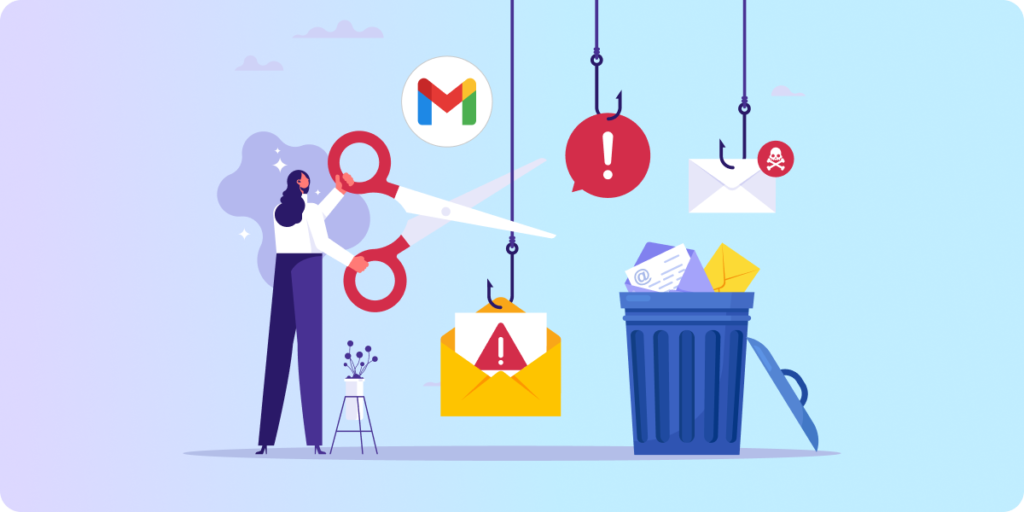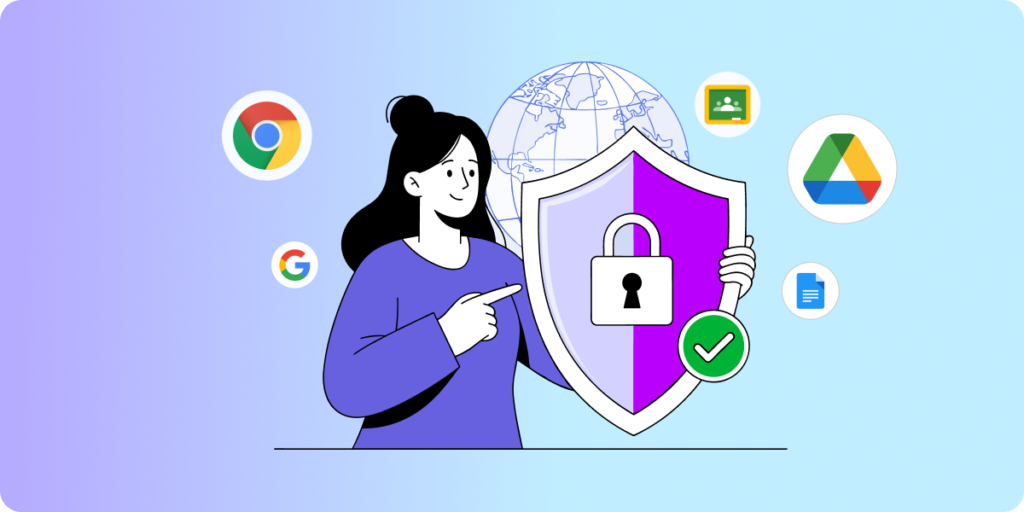We first heard about artificial intelligence tools a while ago. At the time, we addressed this topic in our blog, assuming it would greatly impact the education sector.
Now, when we head into the next school year with AI at our (or, rather, students’) fingertips, let’s seriously consider how to stop the plague of plagiarism in Google Classroom caused by cost-free artificial intelligence technology.
Read on to find out:
- How serious is the problem of plagiarism in schools, and how does it impact learning performance
- Why your school needs an efficient AI detector
- What’s the difference between Google Originality reports vs. Taskmaster reports
Plagiarism Pandemic in Schools
AI-generated chatbots have become common among students- 89% admit turning to ChatGPT to do their homework.
This figure doesn’t necessarily mean they all copied and pasted directly from ChatGPT. They can just use it to search for information or inspiration on how to structure an essay or express an idea.
However, when we look closer, we discover that student integrity concerns are real. According to data from Turnitin, one of the AI detectors, 11% of students didn’t write their papers alone; at least 20% of the content of their papers included chat-generated text. In six million assignments, 80% or more were AI-generated content. And we’re talking only about papers analyzed by this detector.
Sceptics would say that students have always been cheating. However, now it’s easier and faster than ever before. All students need is an online connection; in a second, they get an extensive answer for any prompt.
But, as in times of cheating through small pieces of paper, it implies consequences for students’ learning performance and causes headaches for teachers.
How Does Artificial Intelligence Impact Student Learning?
Let’s see what happened in schools after launching free AI chatbots worldwide.
Like many people from different backgrounds, students got excited about the new opportunities. They quickly figured out how to use artificial intelligence to their profit.
Unfortunately, teachers didn’t follow their flow. Now, 66% agree students should have access to ChatGPT, but only 5% use it to teach. Moreover, many schools have given up on creating AI use policies, allowing unlimited access and unblocking AI detectors.
This decision leaves teachers with a growing cheating problem and blurs the difference between ethical and unethical academic work.
The AI detectors mentioned before don’t entirely solve this issue. It becomes a battle between students and AI chatbots against teachers and AI detectors. Students go to great lengths to polish their AI-made assignments using humanizers and paraphrasers to avoid being detected as machine work.
However, not all AI detectors are trustworthy; they are still technology that can also make mistakes. Too sensitive or faulty AI detectors bring false positive results that cause innocent students to be accused of cheating. This happened to an American girl who used a grammar-checking app when writing her essay.
First Defence Line: Efficient AI Detector
If you want to avoid plagiarism in your school or have already detected AI-generated cheating, wait no more. First, the obligatory measure to take is employing a reliable AI detector.
You may be discouraged after reading about doubts about its effectiveness, but I assure you that this front-line tool will save you a lot of time. With a solid solution, teachers will detect plagiarism in Google Classroom with 100% accuracy.
Google’s Assignments
If you use Google Classroom, you can rely on Google’s Assignments. One of their features is originality reports for papers submitted by students, comparing their content with online sources. It’s based on the power of Google Search, which covers millions of websites and books.
In addition, it searches for text that matches the previously delivered content of other student assignments. Students can also turn in this functionality before submitting their assignments.
GAT Labs’ Taskmaster
You have probably noticed that Google’s solution detects plagiarism in Google Classroom but can’t recognize AI-generated content. For this purpose, you can apply one of the free online AI detectors of unknown effectiveness… or implement a trusted and automatic tool that detects any copied content.
Taskmaster from GAT Labs is an AI-based solution for dealing with artificial intelligence misuse in student assignments in Google Classroom. It protects academic integrity by instantly flagging copy-paste and AI-generated content when an assignment is submitted. It also provides a reliable percentage score for whether the text has been generated by artificial intelligence.
Additionally, it can block the copy-paste option by default. Moreover, the Active ID algorithm analyzes personal typing patterns in every paper and judges whether the student is the author.
Google Originality Reports vs. Taskmaster Reports
Taskmaster Reports |
Assignments Originality Reports |
| Detects any copy-pasted content. | Detects text online sources and other school assignments matches. |
| Blocks copy-pasting action. | Not available |
| Detects content generated by artificial intelligence. | Detects content available on the web. |
| Available for teachers and admins | Available for teachers and students (3 times before they submit their assignment) |
| Checks student confidence that the user completing the assignment is the student. | Not available |
| Unlimited reports | Up to 5 assignments per class (with Google Workspace for Education Fundamentals)OR unlimited reports (with Teaching and Learning Upgrade and Education Plus) |
| No size limit for any assignment submitted by Google Docs | Document file size max 2 MB |
What’s the Solution for AI-generated Assignments?
Successfully managing artificial intelligence in schools requires collaboration between teachers and admins. Educators should adjust their teaching methods to the new reality, and the IT team needs to provide the best solutions to control AI use in the school.
1. Implement Reliable AI Detectors
Efficient AI detection requires a reasonable balance between trust in students and the use of efficient detectors. Employ reliable solutions from trusted providers to detect machine-generated content efficiently. Let them do their part in analyzing student assignments, but also treat every student personally and take into account their learning performance in the long term.
2. Teach Wise Use of AI
Using any technology unthinkingly will not lead to success. Teachers must understand the phenomenon of artificial intelligence and its advantages and risks. Educating students about the responsible use of this new technology is a mandatory part of the digital citizenship curriculum. Showing students how to use AI-based tools properly helps avoid plagiarism in Google Classroom and improves students’ IT skills and awareness.
3. Promote AI Ethics
Schools and universities must not sit idly by in the face of cheating via artificial intelligence. They must encourage an ethical attitude in learning and appreciate it properly. This effort to instill the values of fair competition and working independently will benefit students professionally and personally. Students should know that bad practices like using AI to get a better grade will finally come to light because a lie can’t live forever.
4. Foster Creative Thinking
AI chatbots have limitations and can make mistakes. They can’t create responses about topics they don’t know about. Teachers should take advantage of this weakness and assign homework requiring students to use their personal experience, refer to class discussions, or express their opinions. Don’t let AI replace independent thinking and literacy skills; they are essential for further learning.
Closing Thoughts
Academic integrity is a value every educational institution needs to safeguard at all costs for the sake of its students. Reliable plagiarism detectors and education on AI ethics support a fair and safe learning atmosphere for each student to grow up in.
Schools and universities must count on trusted solutions such as Taskmaster to adapt to the new digital landscape and provide the highest level of education.
Join our newsletter for practical tips on managing, securing, and getting the most out of Google Workspace, designed with Admins and IT teams in mind.






